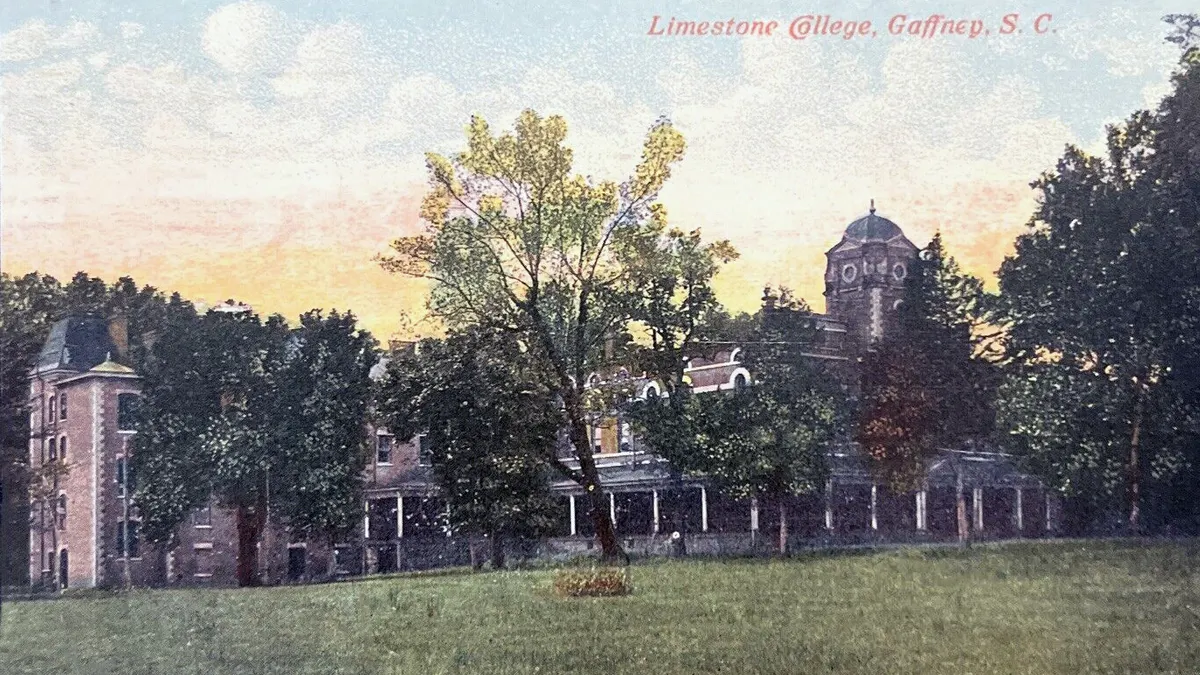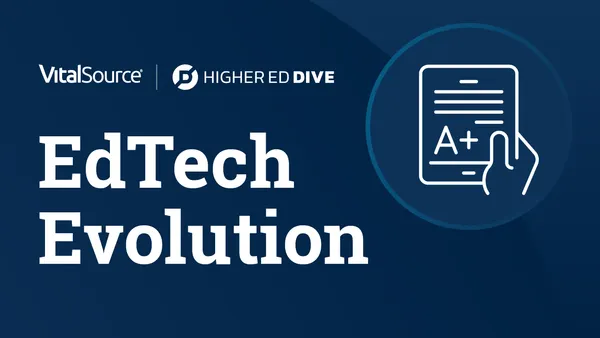If higher education as a business model is collapsing under the weight of weakening public support, fewer students seeking the product and rising costs for workforce and capital maintenance, one institution believes it has the answer to saving students time, money and the industry at large.
Ubiquity University officials say that the time has come for a revamped view of higher education, one that simultaneously spurs creative thinking, saves students money, and encourages global citizenship.
But can the for-profit institution gain ground and enrollment amid increasing inquiry from the federal government and nonprofit institutions adopting for-profit recruitment and teaching delivery strategies? We talked with Ubiquity Chief Innovation Officer Peter Merry about the culture and reformation of higher education.
EDUCATION DIVE: Ubiquity boasts that it offers students an unconventional model to higher education, one which focuses upon skill development and job readiness. But what separates this model from other institutions which are also emphasizing these same elements?
PETER MERRY: Firstly, "job readiness” for us means readiness for a world of hypercomplexity, where numerous interconnected global challenges are all peaking at the same time, and where the speed of change is increasing exponentially. The kind of skills and competencies required for this are very different to those needed in more stable times.
To make an effective impact in this kind of world requires more than cognitive development, which is why we have adopted a tripartite approach to our pedagogy which combines study, self-mastery and hands-on Impact Projects.
The company says it has a focus upon liberal arts training in entrepreneurship, creativity and innovation. Can you talk about why these three tenets are such an important focus over communication or technical training, and how they prepare students to perform in a wide range of jobs?
MERRY: IBM’s Global CEO Studies and employer research point to the need for competencies such as creativity, complex-problem solving, intercultural communication and collaboration. These are skills you have to develop as a whole person. They cannot be learned from a book. That means you need an approach to learning that engages multiple intelligences.
Combining liberal arts with vocational training both gives people the qualities they need to be effective in today’s world as well as a concrete skill set to use. Entrepreneurship, creativity and innovation are key to creating new solutions to the major challenges confronting humanity today.
Ubiquity has invested and plans future development in areas of virtual and augmented reality, gamification and virtual learning environments. Why, and what are some of the costs or considerations associated with this kind of technical emphasis?
MERRY: While distance learning has gained popularity over the past decade, it’s still not always the most exhilarating way to study. Although online courses cover cognitive skills just fine, students miss out on an important dimension of learning: engaging other intelligences and more intensive interactivity.
In fact, only 4% of students who enroll in a Massive Open Online Course (MOOC) will actually complete the course. Immersive virtual reality could radically change that experience. In order to develop the kind of whole person competencies described above in an online setting, we have to get beyond the internet-as-a-page experience and open up the experiential learning opportunities that the more immersive technologies are unlocking. Gamification is key to unlocking people’s creativity and keeping them driving towards their goals. It is not just for kicks, but core to the internet’s ability to offer engaging and effective whole-person learning.
One of Ubiquity's primary selling points is affordability. How does Ubiquity keep costs low when other institutions nationwide are struggling with rising costs and dwindling resources?
MERRY: Firstly, we have no real-estate. We are an international team working out of local offices on a global learning platform that is based in the cloud. That is an instant head-start on most incumbent higher education institutions. We have also cracked the code on how to assess at scale the competencies beyond just understanding (e.g. applying your understanding, collaboration, creativity).
This enables us to provide both personal support for each student through our course facilitators, who host “pods” of 8-12 students, while using the best of the technology to create scalable assessment infrastructure that minimises facilitator time while maximising transparency and integrity. The model is built for scale, which enables us to provide these services at very affordable rates.
Is there any concern that recent headlines about for-profit education could negatively impact enrollment or perception of Ubiquity University?
MERRY: When people encounter Ubiquity, they seem to automatically know that we are not in this for the money. We care about equipping as many people as possible to make a positive impact in a world that desperately needs fundamental change. As a Benefit Corporation, we always put our higher purpose front and center, and people just feel that. The values that drive Ubiquity are what attract people, together with our commitment to make it work for everyone as best as we can.
What are the metrics your institution hopes to be measured by: graduation rates, job placements, innovations in teaching and learning?
MERRY: The most fundamental metric will be the quality of positive impact that our graduates make in the world. How many lives do they positively effect? What’s the quality of that impact? How do they contribute to the sustainability of our planet? Of course, other metrics such as retention rates are part of reaching those goals.
In terms of careers, what is most important to us is that people find the sweet-spot where their passion meets a need in the world — making a living, making a difference — be it through setting up their own enterprise or contributing to existing organizations.
What is the No. 1 thing Ubiquity is doing today that will shape all of higher education in the next 5-10 years?
MERRY: Providing affordable, transformational education to young people worldwide who either don’t have access due to cost or infrastructure, or who are disillusioned by the irrelevance of the content and form of existing learning institutions.








